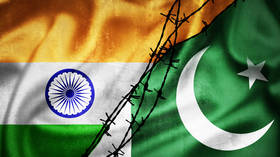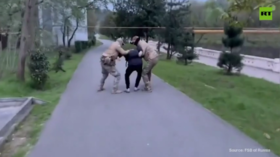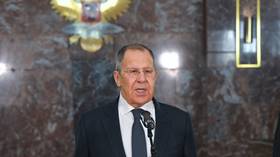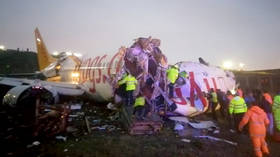Medical journal confirms AstraZeneca’s Covid vaccine 70% effective, but confusing test results hinder global rollout
With AstraZeneca’s long-awaited Covid-19 vaccine approaching UK approval, peer-reviewed data shows the jab to be 70 percent effective. Behind that number, however, lurks a confusing backstory.
Developed in partnership with Oxford University, AstraZeneca’s Covid-19 vaccine was found to be 70.4 percent effective in a peer-reviewed study published in The Lancet medical journal on Tuesday. It may seem like a low number, compared to the roughly 95 percent effectiveness touted by rival firms Pfizer and Moderna, yet the figure is the first claim of effectiveness to be peer-reviewed in a medical journal.
Nevertheless, the number stems from some confusing trial results.
Also on rt.com Mass vaccination delayed in US and UK, as drug firms struggle to meet demandA majority of candidates in AstraZeneca’s trial received two full doses of the vaccine, and the jab was found to be 62 percent effective. However, a smaller subgroup was given a half dose, followed by a full dose. Among these patients, an efficacy rate of 90 percent was reported. Combined, the vaccine’s effectiveness was rated at 70.4 percent.
“It's fair to say that it needs looking into to explain the intriguing result,” Oxford Vaccine Group head Andrew Pollard told reporters ahead of the announcement.
Curiously, the higher efficacy of the lower dose was discovered by accident. In an interview with Reuters last month, Mene Pangalos, head of biopharmaceuticals research and development at the company, said that the low dose was administered in error, calling it a “useful mistake.”
Just over 2,700 participants were given the lower dose, and nobody in this group was older than 55. With the 70 percent figure arrived at by combining two different trials on two different groups of people, AstraZeneca CEO Pascal Soriot told Bloomberg late last month that his firm would likely launch a fresh global trial.
Also on rt.com Hancock hopes UK’s AstraZeneca Covid-19 vaccine will be approved in weeks as first Britons vaccinated with Pfizer jabHowever, Soriot said on Tuesday that AstraZeneca has already begun seeking regulatory approval for the drug around the world. In a statement he said that the manufacturer’s “supply chains are up and running, ready to quickly begin delivering hundreds of millions of doses.”
The British government has committed to buying 100 million doses of the vaccine, on top of several million shots by Pfizer. As Britons started receiving Pfizer’s jab on Tuesday, Health Secretary Matt Hancock said he is hopeful that the AstraZeneca vaccine will be approved “in the next couple of weeks.”
American officials aren’t as confident as the British. “Frankly, unless there is a very clear explanation based on facts and data for what’s behind those two numbers, it's very likely that that package would not be sufficient for an approval,” Moncef Slaoui, chief scientific adviser to the White House's Operation Warp Speed vaccine drive, told Reuters last week.
Think your friends would be interested? Share this story!















